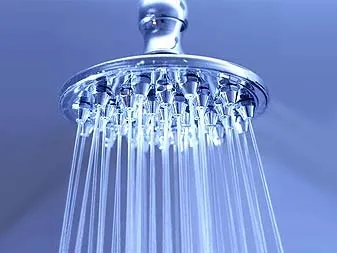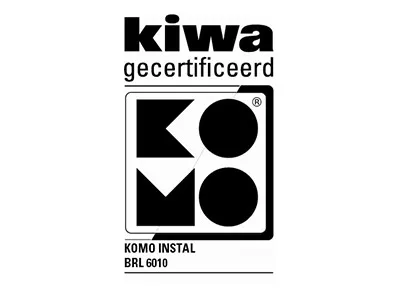What is Legionella?
There are several types of Legionella bacteria that can cause Legionnaires’ disease (legionellosis).
The bacterium occurs naturally in surface water and, in very low concentrations, in drinking water. In systems such as drinking water installations, hot water systems, cooling towers, and whirlpools, the bacteria can multiply rapidly under favourable conditions.
People can become infected by inhaling aerosols (very small water droplets) that contain Legionella bacteria. Two types of illness can occur:
-
Pontiac fever: a flu-like illness
-
Legionnaires’ disease: a severe form of pneumonia (Legionella pneumonia) that can be fatal without timely treatment.

Risk factors in water supply installations
Important factors that can promote the growth of Legionella include:
-
Water temperature: Legionella grows best at temperatures between approximately 20 °C and 55 °C.
-
Residence time: the longer water remains stagnant in pipes, the greater the risk.
-
Stagnation: prolonged stagnation of water (days to weeks) provides favourable conditions for growth.
-
Biofilm: a slimy layer of microorganisms in which Legionella can settle and find protection, even against thermal disinfection.
-
Sediment: deposits in, for example, boilers and storage tanks create a nutrient-rich environment.
-
Hotspots: zones with temperature fluctuations or low flow where growth can occur.
Drinking Water Act and Drinking Water Decree
Since 1 July 2011, the Drinking Water Act and the Drinking Water Decree have been in force.
These regulations stipulate that owners of collective water supply installations in the priority risk category (formerly high and medium risk) are required to have a Legionella risk assessment (in accordance with ISSO 55.1) carried out and a control plan drawn up by a BRL 6010-certified company.
The control measures taken must be documented in a logbook.
Failure to comply with Legionella legislation constitutes an economic offence and can result in significant fines.
Examples of priority risk installations:
-
Hospitals and healthcare facilities
-
Accommodation facilities
-
Asylum seeker centres and correctional institutions
-
Bathing facilities (swimming pools, saunas)
-
Campsites and marinas
-
Truck stops, petrol stations, and roadside restaurants with public showers
Non-priority installations fall under the general duty of care for the supply of safe drinking water (in accordance with ISSO 55.2).
Examples of non-priority installations:
-
Offices and business premises
-
Educational institutions and government buildings
-
Sports facilities and day recreation areas
-
Shopping centres, department stores, and fire stations
-
Industrial facilities and assisted living homes
Owners of non-priority installations must be able to demonstrate that their drinking water poses no health risk. This can be achieved by having a risk assessment and management plan prepared in accordance with ISSO 55.2.
In the event of contamination, the owner must be able to prove that all reasonable measures have been taken to prevent risks.

BRL 6010-certified
Delmeco is BRL 6010-certified and is therefore one of the few certified companies in Zeeland.
Our legionella specialists carry out risk analyses and prepare management plans, ensuring that you know whether your installation complies with the requirements of the Drinking Water Act.
We identify risk areas within cold and hot water systems, detect installation defects, and provide advice on modifications or control measures.
The management plan specifies which periodic actions must be performed and who is responsible for them.
As a client, you are also assured that our designs for new installations and modifications to existing systems comply with the latest requirements for legionella prevention.
The inspection process
-
Initial consultation
-
Quotation
-
Risk analysis – inspection from water meter to tap point (including hotspots, pipe diameters, material usage, consumption patterns, dead-end pipes, and ambient temperature)
-
Reporting with documentation and drawings
-
Discussion of the report with the client
Delmeco can also provide support in selecting an implementation partner, supervising construction, and overseeing the delivery of modifications.
We have already assisted numerous clients throughout Zeeland and the southwest of the Netherlands in developing and implementing legionella management plans.
For a selection of our legionella inspection projects, please refer to our project references.
